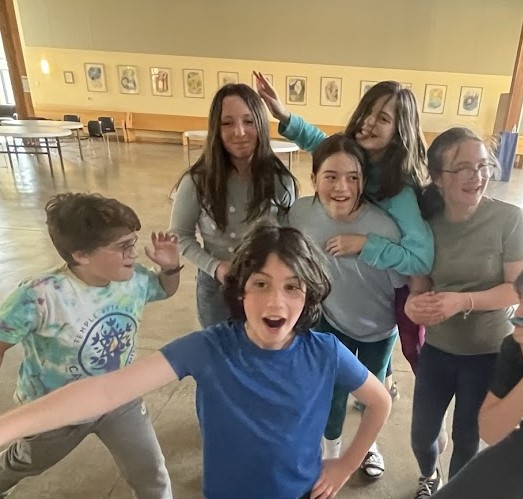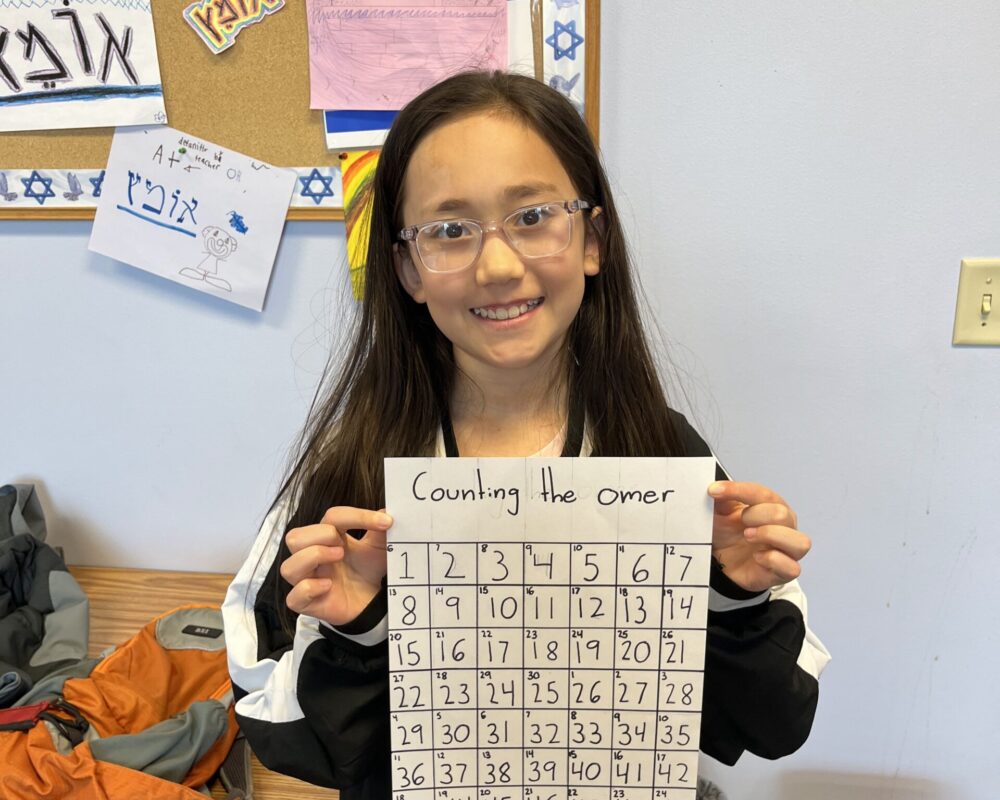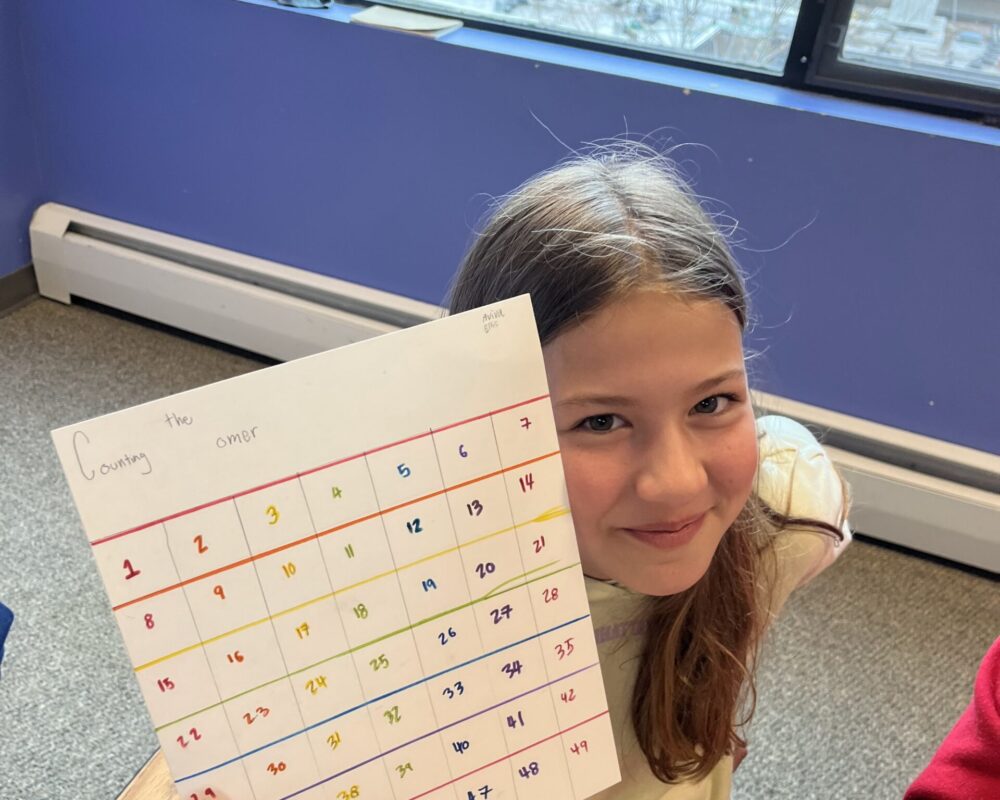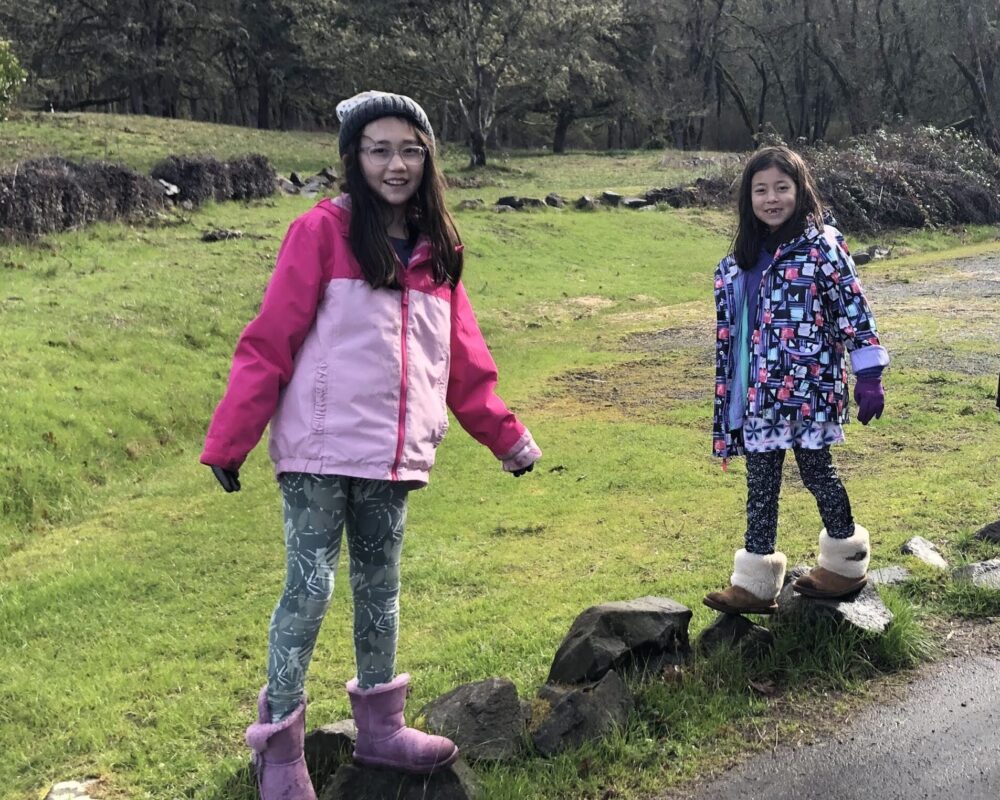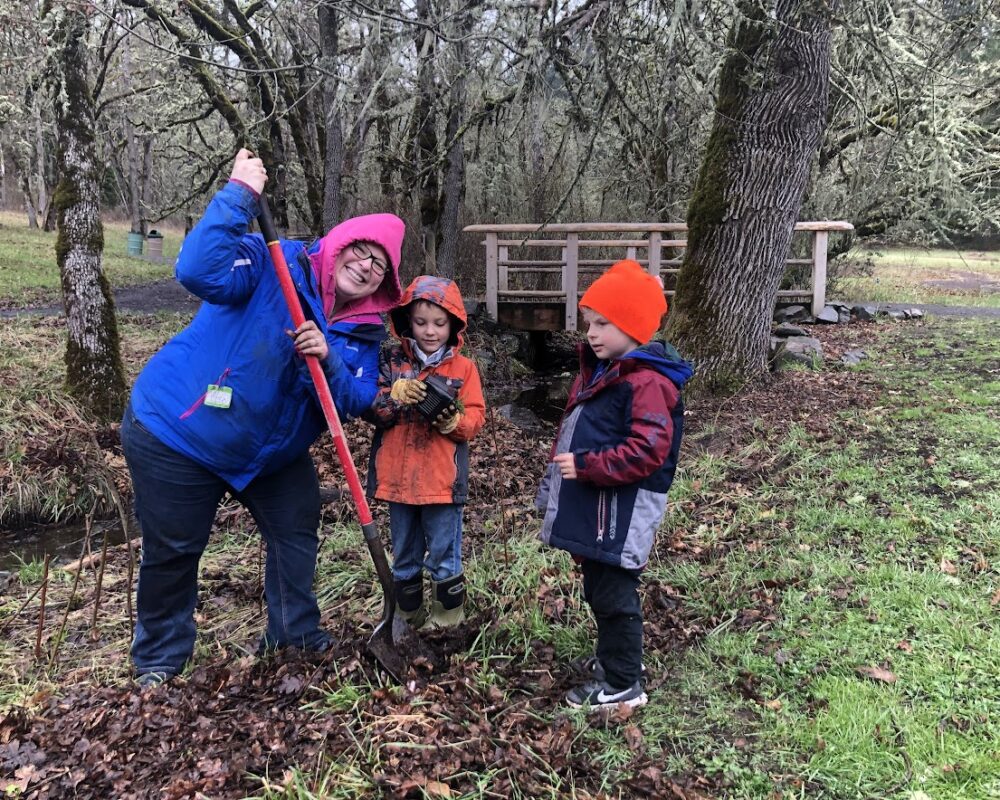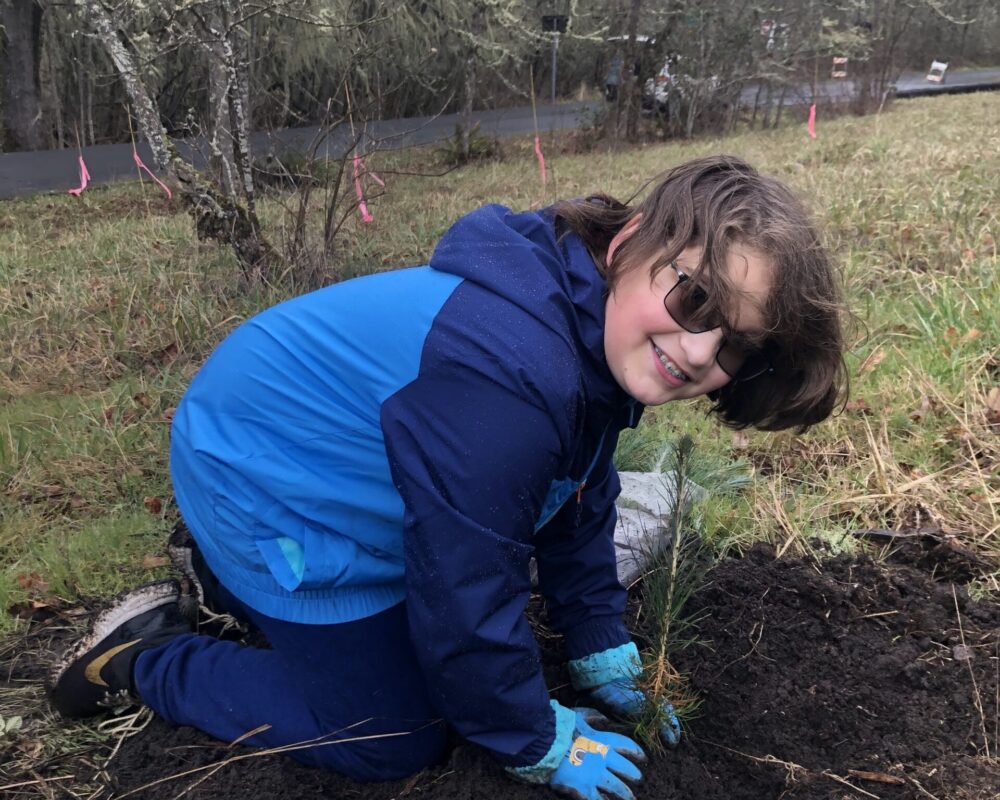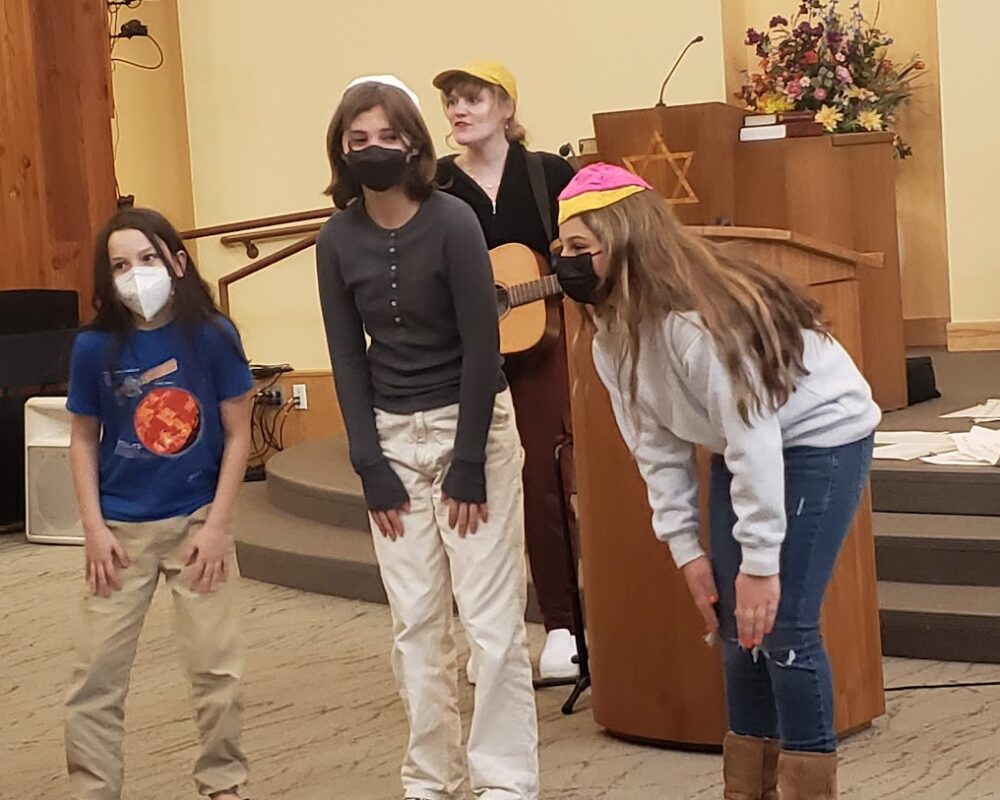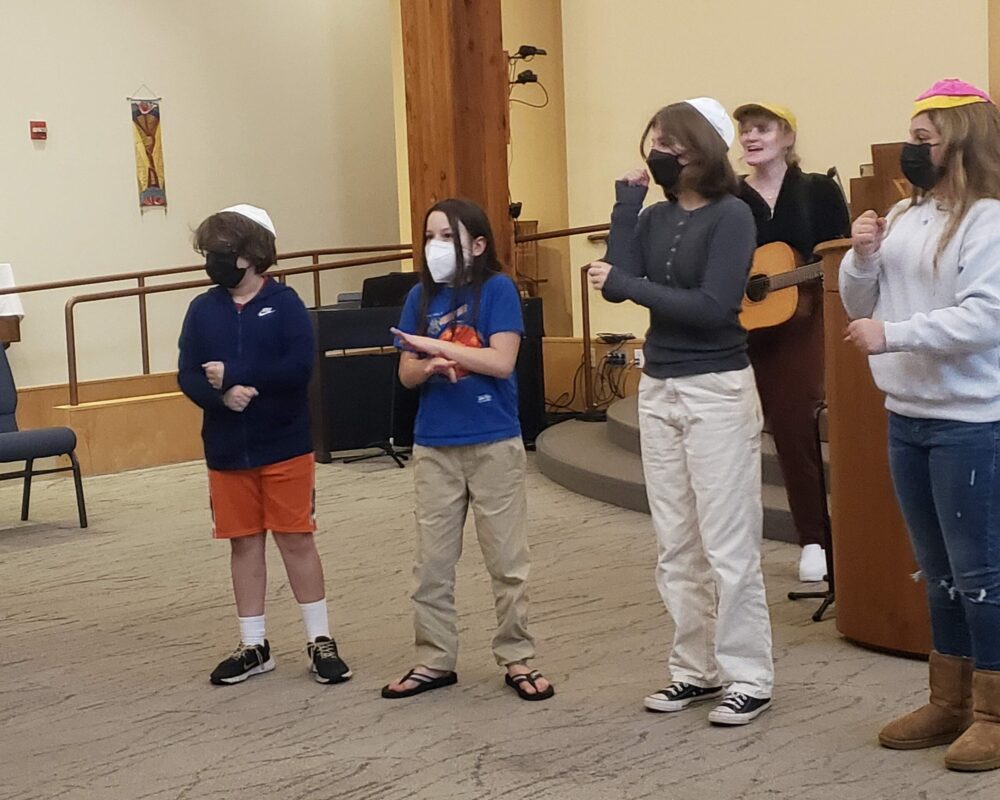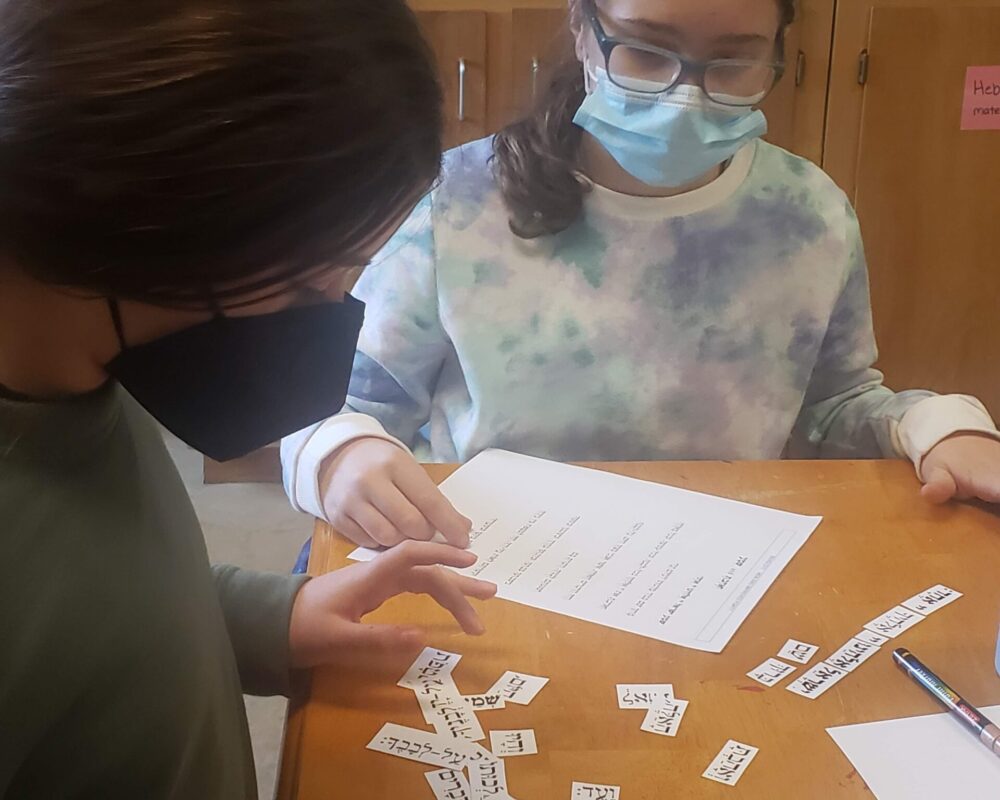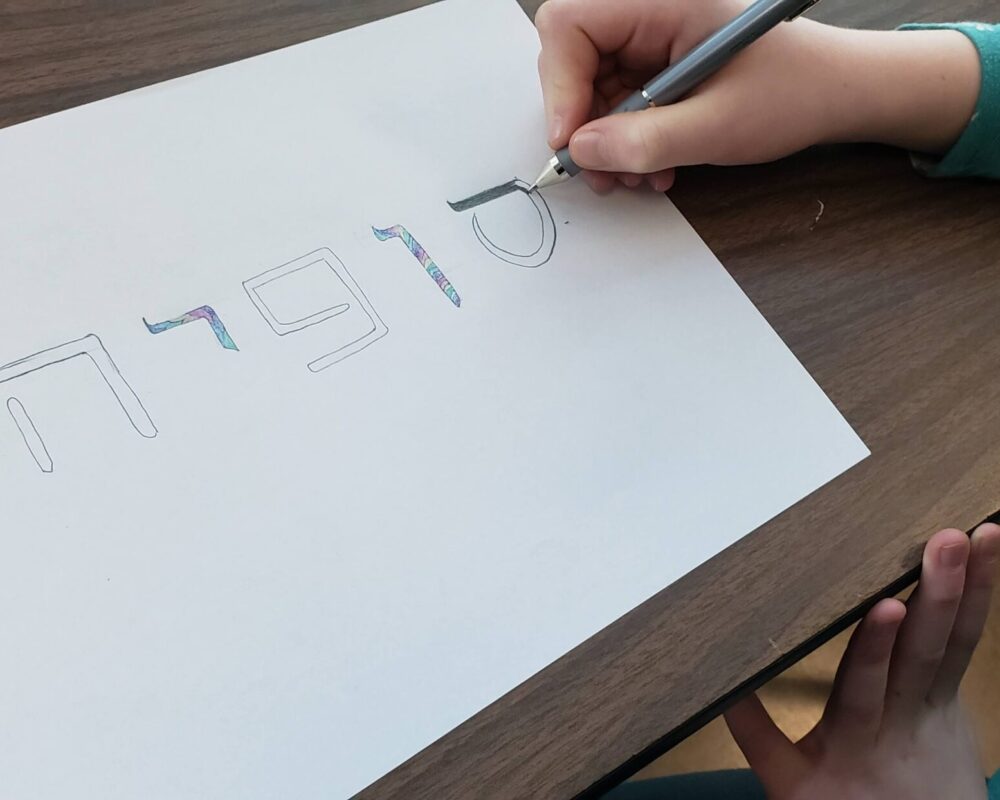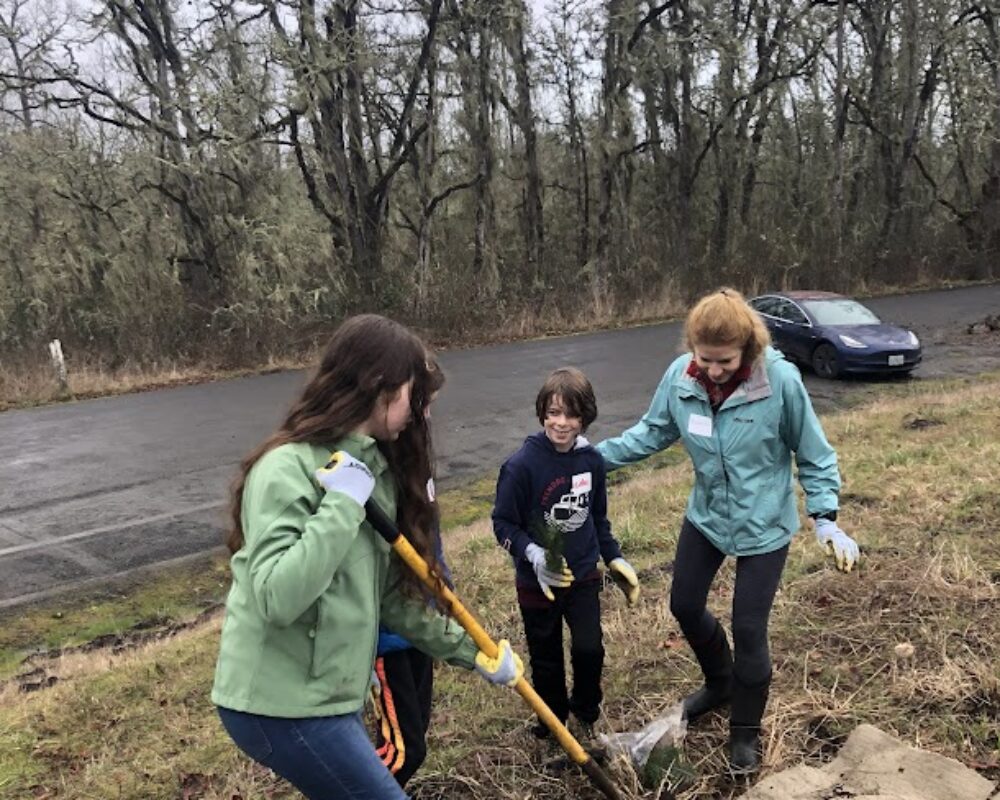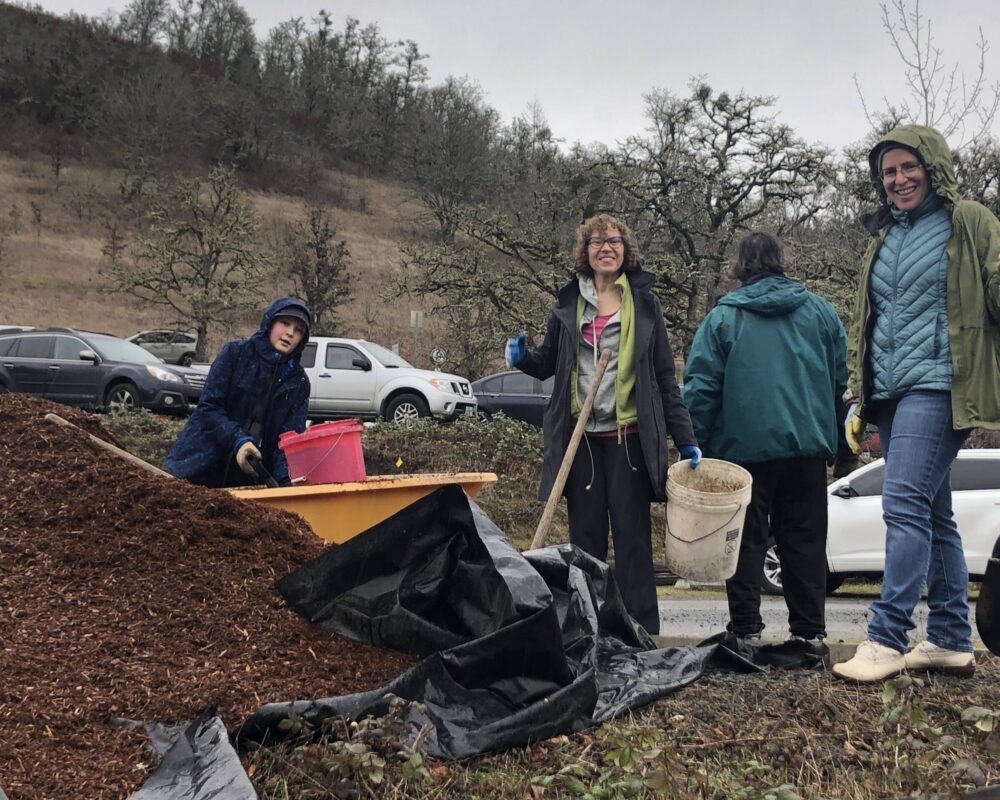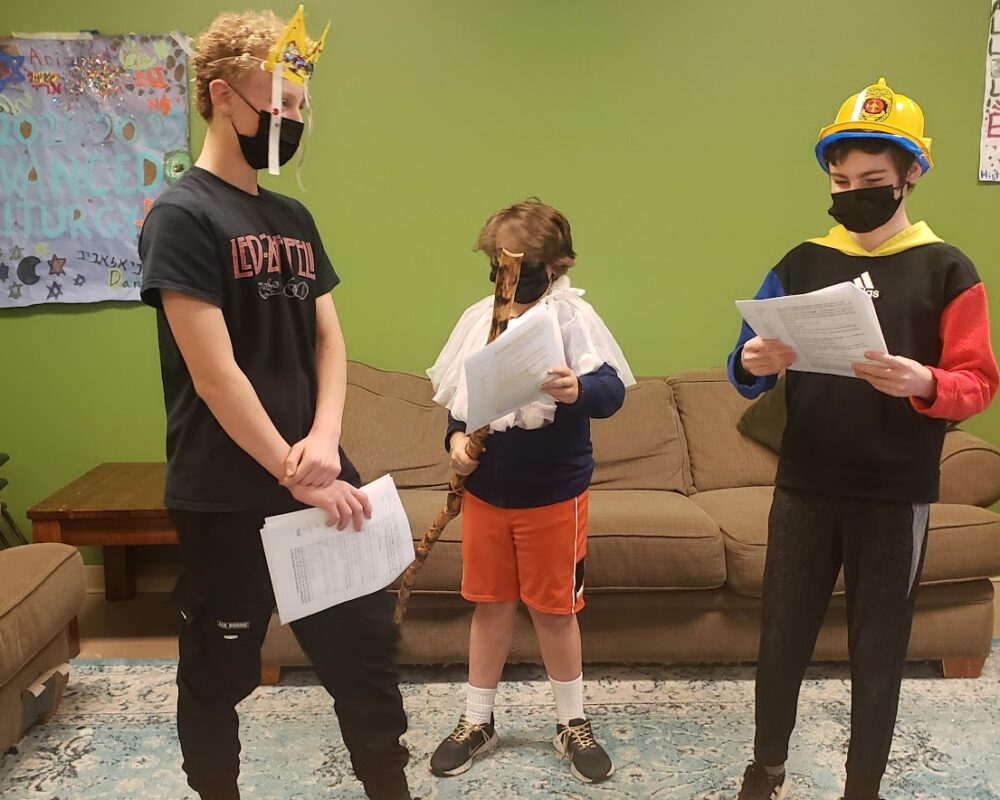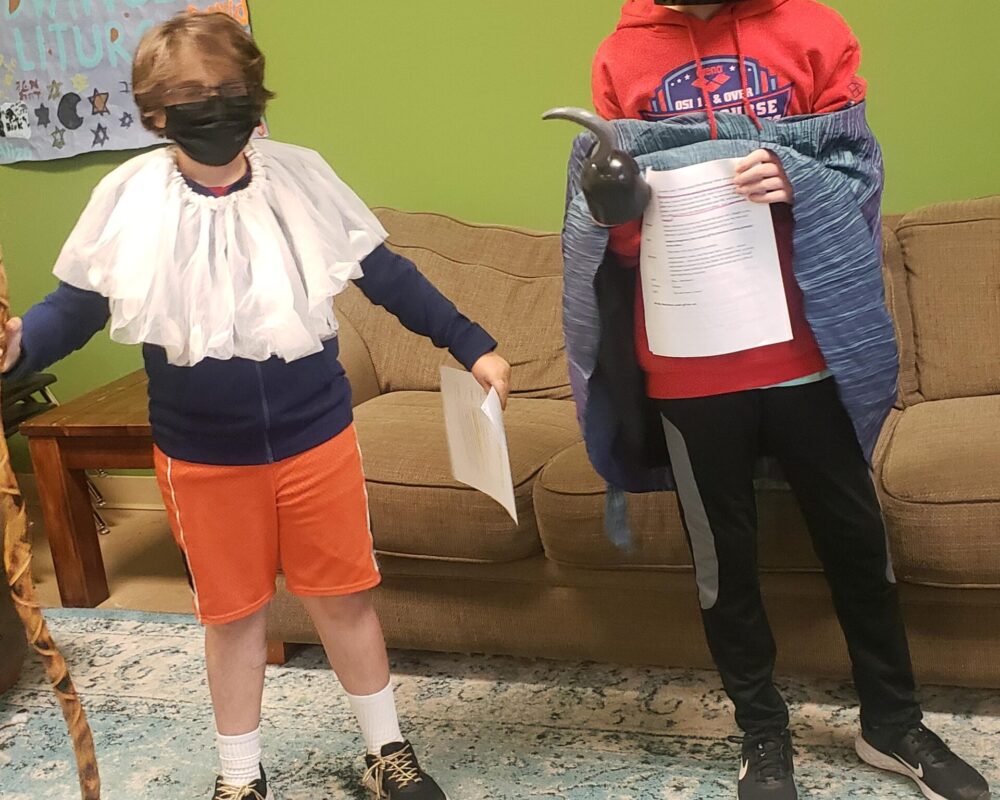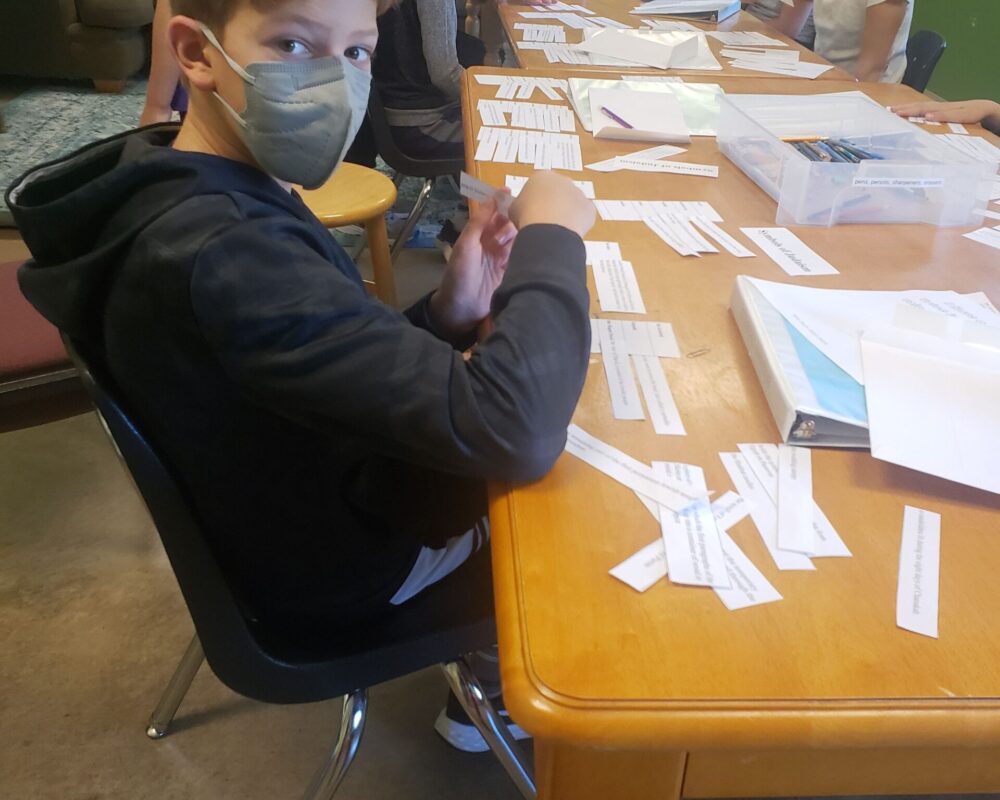Talmud Torah
TBI’s Religious School
Announcements
*Registration for the 2024-25 school year is LIVE!*
The first day of Talmud Torah classes will be Sunday, September 22, 2024. You can see the class schedule and the calendar for the 2024-25 school year by clicking HERE or by going to the Schedule tab.
Registration is conducted through ShulCloud. Please log in to your ShulCloud account, click on the “Start School Enrollment” tile, and select Talmud Torah 2024-25. Check the Registration tab on this page for complete instructions.
Drop-off/pick-up procedures
Drop-off — Parents are welcome and invited to come in the building and bring their children to their classrooms. Zra’im and Gan (preschool and kindergarten) families: Please make sure to walk your children into their classrooms and greet their morim (teachers) and/or madrichim (TA’s).
Pick-up — All parents of students in Zra’im through Hay (Preschool-5th grade) must come to the classrooms to retrieve their children. Children are not to exit the building without the presence of their designated adult.
On Sunday mornings, parents and guardians are welcome to hang out in the social hall, and feel free to bring your morning coffee and breakfast items to enjoy while you schmooze. Keep an eye on the TT Updates, the TBI e-news, and the website for Sunday Sisterhood Cafe and Brotherhood Breakfast dates!
Parents/guardians are most welcome to check in with your children’s teachers on Sundays and Wednesdays, visit the classrooms, or stop by the TT office to touch base with Sheri and Rachel. We love to see our families and value any chance to connect. You are a key part of your children’s TT experience!
We are always on the lookout for inspired and motivated new staff members at Talmud Torah. Take a look at our curriculum tab for a better understanding of the different kind of classes (Sunday cohort, Hebrew, and JEWL) we offer. If you are interested in teaching for Talmud Torah, please contact us at talmudtorah@tbieugene.org.
To register for Talmud Torah 2024-25, follow these steps:
(1) If you are not yet a TBI member and would like to enroll your child(ren) in Talmud Torah, you must first join TBI. Go HERE to complete a membership inquiry form, or call the main office at 541-485-7218.
(2) Review the Talmud Torah policies below, including tuition rates for the 2024-25 school year.
(3) Look at the “Learning and Curriculum” tab to learn about the different parts of our program: Cohort, Hebrew, and JEWL.
(4) Log into your ShulCloud account and make sure ALL of your info is up-to-date. This includes making sure each child in your household is listed, along with their birth date, and is designated as “child.” This will be necessary for Talmud Torah registration.
(5) After logging into your ShulCloud account and verifying that all info in your account is up-to-date, click on the “Start School Enrollment” tile, and select Talmud Torah 2024-25.
(6) Make sure to select a volunteer role for your family for the school year HERE. Your enrollment in Talmud Torah will not be confirmed until you have done so (if you have questions about this, please contact us at talmudtorah@tbieugene.org).
(7) Your tuition charges will be posted to your ShulCloud account, and you can set up your payment preferences there.
(8) If you requested a scholarship application as part of the registration process, the Talmud Torah office will send you the application and let you know how to submit it.
(9) If you have a student in grade 2 or older, you will be notified when JEWL class options for the Fall Term are available, and you will be instructed how to select your student’s JEWL classes.
(10) If you have questions about using ShulCloud, please call the main office at 541-485-7218.
If you have any questions about registration, contact talmudtorah@tbieugene.org.
Policies
Please take a few minutes to review the complete Talmud Torah policies updated here.
Here are some key excerpts that may be helpful to you.
- For policy information related to the b’nai mitzvah program, please see the b’nai mitzvah page.
- Regarding eligibility and participation:
- Students may enroll in Kita Zra’im (preschool class) if they turn 3 by the first day of classes (September 22, 2024).
- Students may enroll in Kita Gan (kindergarten class) if they turn five before December 31st of the school year.
- Some children with fall birthdays (before Dec 31st) may choose to be in a Talmud Torah cohort class that is a year ahead of their day school grade. Parents are encouraged to talk with the Director of Youth Education to determine the best fit for each child.
- Students that get a late start in Talmud Torah may be asked to start in a cohort class that is younger than their day school grade.
- All TBI classes are for TBI member children only unless there is special permission.
| Tuition for 2024-2025 | Tuition | With sibling discount |
| Sunday Cohort Class Only (Preschool, K, 1st grade only) | Through 7/31/2024: $575/year
Beginning 8/1/2024: $600/year
|
Through 7/31/2024: $517.50/year
Beginning 8/1/2024: $540/year
|
Full Program (grades 2-7):
|
Through 7/31/2024: $955/year Beginning 8/1/2024: $980/year
|
Through 7/31/2024: $859.50/year
Beginning 8/1/2024: $882/year |
Tuition details:
Enrollment in Sunday Cohort Class only (Preschool, K, & 1st grade only): $575/year ($517.50 with sibling discount)
Enrollment in Full Program (grades 2-7) (Sunday cohort, Hebrew, and JEWL classes): $955/year ($859.50 w/ sibling discount)
If you register after July 31, 2024, tuition increases by $25 per child.
TBI offers a 10% discount after the first child to families who enroll two or more siblings. The discount applies to the lesser tuition, with the more expensive tuition considered as the first child. If your family is able to waive this discount, it is a generous gift to Talmud Torah.
Scholarships are available! In the registration process, you will be asked if you need information about scholarships. If you check “yes,” we will send you a scholarship application upon confirmation of your child’s enrollment.
There is a non-refundable $100 registration and materials fee included in your tuition.
Starting partway through the year: Families who start at any time during the first trimester will pay full tuition. Those who start at any time at the beginning of or during the second trimester will pay 2/3 of the full tuition. There is no further discount for starting in the third trimester, i.e., those families will pay 2/3 of the full tuition.
Tuition refunds are as follows:
– Prior to the first day of the 1st trimester, full tuition is refunded, less the $100 non-refundable registration and materials fee. At that time, we’ve hired teachers, bought supplies, and established class sizes based on the numbers we expected.
– Prior to the first day of the 2nd trimester, 50% of the tuition is refunded, less the $100 non-refundable registration and materials fee.
– There is no refund after the first day of the 2nd trimester. If you are being billed monthly, you will continue to be billed for the remainder of the year.
– Families with students who have special needs or other special circumstances may discuss exceptions to this policy with the Director of Youth Education or the Executive Director.
Supporting Your Student
As part of the registration process (at the beginning of the school year), you will be asked if your child has any unique learning needs. Please make sure to include any relevant diagnosis, school related learning plans, medical or religious practice matters. If your child’s needs change throughout the year, please contact Sheri Konowitz, Director of Youth Education, to update your child’s learning needs.
Such matters are then communicated to the students’ teachers and substitutes by Sheri Konowitz.
Please consider that your requests have been communicated and taken into account.
IF you have a shared a request or matter that you would either like a specific response to and/or to discuss personally with Sheri, please indicate: “I would like to speak with Sheri about this” and she will reach out within two-three weeks of receiving your request to follow up with you as to whether or how your request can be accommodated.
Food:
- Talmud Torah offers snacks to students on Sunday mornings and Wednesday afternoons. If your child has special dietary needs, you are welcome to bring an alternative snack.
- Peanut-Free Zone: We have life-threatening allergies among our student population. No foods with peanut ingredients may be served or present in the Talmud Torah area of the building or in conjunction with a Talmud Torah event unless the staff has made special arrangements to take all necessary precautions.
- Wondering about TBI kashrut policies for bringing food to shul events? Here’s a summary.
Talmud Torah Staff

Sheri Konowitz
Director of Youth Education
Email: sheri@tbieugene.org
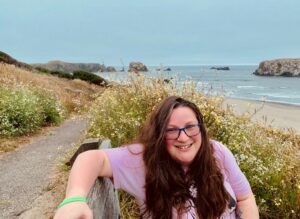
Rachel Burstein
Talmud Torah Administrator
Email: rachel@tbieugene.org
Talmud Torah Advisory Committee
The Talmud Torah Advisory Committee works collaboratively with the Director of Youth Education to support the mission of the Talmud Torah educational experience at TBI. During the school year, we meet monthly to think and act in areas of need for the Talmud Torah school and community building ranging from supporting our teachers, holiday planning, and family days of learning. We also serve as ambassadors of the Talmud Torah community to the larger TBI and Eugene community, reporting annually to the congregation on the status and needs of the school.
The mission/scope of the TTAC is likely to include: helping with recruitment and fundraising, offering support to our teachers, coordinating parent volunteers and planning for holidays and Yommai Limmud, family days of learning. We serve as ambassadors of the Talmud Torah community to the larger TBI and Eugene community, reporting annually to the Board/congregation on the status and needs of the school. We also gather for a summer retreat to celebrate, debrief the year and plan for what’s ahead.
The committee is interested in hearing from parents and other members of the community. If you have questions, concerns, or ideas for the Talmud Torah program, feel free to contact either co-chair or any committee member (listed below).
If you would like to apply to be on the TTAC, click here for the application.
Talmud Torah Advisory Committee Members 2024-25:
Naamith Heiblum (co-chair)
Gabe Tabak (co-chair)
Jessica Anderson-Worm
Navit Berman
Elliott Farren
Lily Marshall-Bass
Karrie Walters-Warren
Weekly Schedule for 2023-24
(All classes are in person at TBI)
Sundays
9:30 am-11:15 am – Cohort (includes 30 min music/shira sessions by age group)
11:30 am-12:15pm – Hebrew classes
12:30 pm-1:15pm – JEWL classes
Wednesdays
4:15pm -5:00 pm – Hebrew classes
5:15 pm-6:00 pm – JEWL classes
Calendar for 2024-25 (5785):
*note that this calendar is always subject to change; please check it regularly*
TT Calendar 2024-25 coming soon
Learning & Curriculum
Vision of Talmud Torah
Talmud Torah is the religious school of TBI for students from 3 years old through 7th grade (and Teen Sundays) to learn about Jewish life, practice, prayer, ritual, and history. Our school offers students a place to build life-long friendships, gain literacy in Jewish skills and traditions, take part in holiday celebrations, learn Torah, and experience the benefits of community.
Talmud Torah strives to plant seeds of Jewish joy, literacy and practice that will continue to grow over a lifetime in the lives of our students and their families.
Talmud Torah is made possible by our dedicated and enthusiastic staff of teachers, morim, with a love of teaching, children and a passion for Jewish identity and life-long learning. Most Talmud Torah classes also have a teen madrich/ah (TA) who is a Talmud Torah graduate. Our programs act as a supplement to Jewish home life, which, along with Jewish summer camp and a connection to Israel, all combine to deepen individual Jewish identity and family practice.
Talmud Torah is led by Sheri Konowitz, TBI’s Director of Youth Education, Rachel Burstein, Talmud Torah’s Administrator, our Talmud Torah Advisory Committee, co-chaired by Naamith Heiblum and Gabe Tabak.
We meet Sundays and Wednesday afternoons depending on the grade. Our overall curriculum and school philosophy and vision is rooted in Our Four Pillars: relevance, depth, experiential and relational learning.
Students in Preschool, K, and 1st grade attend:
Sundays from 9:30am ““ 11:15am for Cohort only.
Students in 2nd-7th grade attend:
Sundays from 9:30am to 1:15pm & Wednesdays from 4:15pm to 6:00pm for Cohort, Hebrew & JEWL classes.
Sunday Cohort Classes
Cohort is a theme-based year-long curriculum designed to teach key Torah stories that apply to our lives. Students create projects, art, sing and consider how their learning can bring about more peace and justice in our community and world. Through study, friendships and celebration students build community with their peers, develop a basic foundation of Jewish literacy, and cultivate their Jewish pride.
The focus for each of our Sunday cohort classes* is as follows:
Zra’im – 3 to 5 year old – Torah Stories & Me
Gan – Kindergarten: Having Fun Being Jewish
Alef – 1st grade: Colors
Deep Dives:
- The Rainbow
- Adom/Red
- Clothes and Colors
- Colorful Fruits of Israel
Bet – 2nd grade: Animals
Deep Dives:
- Jonah and the Whale/Ocean Animals
- Birds and Freedom
- Bilaam’s Donkey
- Frogs in Egypt
Gimmel – 3rd grade: Our Physical Bodies
Deep Dives:
- Our Eyes
- Our Feet
- Our Hands
- Our Ears
Dalet – 4th grade: The World of Nature
Deep Dives:
- The Sun, Moon and Seasons
- Mountains
- The Ocean
- Rocks
Hey – 5th grade: Courage
Deep Dives:
- Admitting a Mistake
- Standing Up
- Being Proudly Jewish
- Resisting Peer Pressure
Vav – 6th grade: Life Passages
Deep Dives:
- Birth
- Siblings
- Vocation
- Marriage/Partnership
- Self-Creation
- Death/Legacy
Zayin – 7th grade: Hineni: Showing Up for Our Lives
Deep Dives:
- Showing Up to do the Hard Thing
- Showing Up for our Family
- Showing Up for People Who are Suffering
- Showing Up for the Community
*Note that some years we may combine cohort classes due to class size.
Click here for a detailed index of the Deep Dives (lessons) within each cohort subject.
These cohort curriculum resources are the result of a multi-year process lovingly curated, intricately detailed and thoughtfully facilitated by Rabbi Steve Cohen. The process included direct consultation with Dr. Isa Aron, leading expert in Jewish supplementary education, visits to successful programs around the country in Boston, San Francisco/Oakland and Los Angeles and the engagement of expert curriculum writers and master educators resulting in the curriculum resources we are going to make available to our staff to explore and experiment with this year.
The full description of the Four Pillars, access to Dr. Aron’s article and other resources can be explored here.
Students in 2nd through 7th grade also take multi-age Hebrew and JEWL (Jewish Experience, Wisdom, and Lifestyle). JEWL classes are elective classes and include such subjects as culture, history, art, Israel and more.
If one of your goals for your child is to become b’nai mitzvah, make sure you see that page for information about requirements.
Hebrew Reading Classes
Hebrew classes enable students to study, decode, and explore the meaning of Hebrew prayers, daily and holiday blessings, and songs in the siddur (prayer book) and passages from Torah in preparation for their b’nai mitzvah experience and beyond.
Hebrew reading classes have a clear goal of enabling students to decode Hebrew prayers, blessings, and songs in the siddur (prayer book) and passages from Torah. As students work their way up the Hebrew levels, they should also master a small but powerful set of Hebrew vocabulary words that are used most regularly in synagogue life. This skill set is markedly different from learning to read and write in either their first language or a standard foreign language class.
Classes meet twice a week on Sundays from 11:30-12:15 and on Wednesday afternoons from 4:15-5:00 for a trimester, with three trimesters per school year. Students are expected to come to Hebrew class twice a week to best facilitate learning, but they can master the material with additional independent work if there is an unavoidable personal schedule conflict. All students in grades 2-7 are enrolled in Hebrew reading classes, and families should be aware that siddur/Biblical Hebrew is an important component of most students’ b’nai mitzvah preparation. If students haven’t learned enough Hebrew, they aren’t able to “read” from the Torah or assist in leading a Shabbat service.
Here are the Hebrew Level class descriptions.
Hebrew 1: Aleph-Bet
Vocab: Shabbat/Holiday
- know names and sounds of the Hebrew letters including the 26 letters and 5 sofit (final) forms. Proficiency: 23/31 (75%)
- be able to reasonably write letters (all forms) with the support of a sample to look at. Proficiency: 23/31 (75%)
Hebrew 2: Sound to Print
Vocab: Home & Family
- be able to write letters from memory
- combine letters and vowels to form simple words
- respond to basic requests
- Match pictures/verbal cues with simple, aurally-familiar Hebrew words – add vocab using home & family words
Hebrew 3: Roots & Israel
Vocab: Torah & Tefillah/Siddur
- Learn/recognize 25 familiar roots
- expand vocab
- practice reading
- become familiar with siddur structure for Friday night & Shabbat
- Add vocab related to Israel, books of Torah, major prayers names/vocab
Hebrew 4: Foundations of Grammar
Vocab: Siddur, holidays, everyday life
- identify and know meaning of basic siddur Hebrew words
- recognize masc/fem & singular/plural endings
- recognize infinitives (verbs that begin with “lamed” / “to do something”)
- recognize definite article “hay” /”the”
- recognize how prefixes become prepositions and conjunctions for “and,” “from,” “in,” “to,” “as”
- recognize how to make a sentence negative using “lo”
- identify/define a frequent root “shoresh”
- Understand 50 familiar vocab words used in the siddur, during holidays, and in everyday Jewish life
Hebrew 5: Sh’ma & Her Blessings, Torah Service I
Vocab: Meaning of Prayers
- pronunciation and meaning of prayers
- review parts of the Friday night & Shabbat morning service
- know the names of the books of Torah and examine small passages from Torah together with focus on identifying roots, vocab and meaning
Hebrew 6: Amidah, Kaddishim, Torah Service II
Vocab: Meaning of Prayers
- Preparation for b’nai mitzvah
- review of all prior vocab, skills and blessings
- potential for advanced learning of Hallel and Intro to Trope
Talmud Torah staff and parents work together to determine which Hebrew level is right for each student. Students will move to the next level when they can demonstrate mastery of the benchmarks for that level. Many students may master a level in one school year; some may need some extra time in a level to move to the next class. Both approaches are respectable.
See more about our Hebrew Levels Curriculum Goals and Benchmarks.
Jewish Experience, Wisdom, & Lifestyle (JEWL) Classes
A solid Jewish education includes much more than just Hebrew, holidays, and Torah stories. Traditionally, religious school has also been concerned with ethics and values, social action work, life cycle rituals, learning about the rest of the Jewish Bible, Jewish history, Jewish culture, and Israel. There’s a lot to cover! JEWL classes are elective classes that rotate over the years, depending on the passions of our teachers and community members. Subjects include history, art, Israel, the Shoah and more.
Some classes will meet weekly on Wednesday afternoons for 45 minutes; some classes meet on Sunday afternoons for 45 minutes.
Students in grades 2-7 should plan to take a minimum of three JEWL classes a year. You may take as many as you like. Some students’ schedules will make it possible to take two JEWL classes in the same trimester.
Previously offered JEWL classes have included, among many others: Modern Conversational Hebrew, Hebrew through Pop Music, Art, Jewish Cooking, Judaism and Nature, Biblical History, PJ Our Way Book Club, Shtetl Stories, People Worth Menschioning, Understanding Tzedakah, Choir, Torah Caretakers, Holy Friendships, Kosher Living, Hebrew Calligraphy, Introduction to Yiddish Language and Culture, Introduction to Israel: People and Culture, Jewish Collage and Printmaking, Heroes of the Holocaust, and Judaism and the American Comic Book Tradition.
B’nai Mitzvah: In 6th and 7th grade, Talmud Torah students intensify their focus on b’nai mitzvah with private mentoring, meetings with the rabbis for study of prayer, ethics, anti semitism, faith/doubt and more. See our b’nai mitzvah page for more info. If you are not a member of TBI and are interested in arranging a B’nai Mitzvah a la carte at TBI, please reach out to info@tbieugene.org.
Teen Sundays, Teen Jam, & Madrichim Opportunities
Students who have completed their Talmud Torah studies are encouraged to continue to participate in Jewish life and learning at TBI, through our twice monthly Teen Sundays, Teen Jam and Madrichim opportunities, supporting younger students and our fantastic teachers to provide joyful Jewish learning.
Talmud Torah’s Curriculum is Rooted in Four Pillars
Our Talmud Torah Community will stand on and strive to embody the following Four Pillars – Four Kavannot, Guiding Intentions – inspired by the Netivot Curriculum developed by Rabbi Steve Cohen:
Relevance
Children are naturally curious and hungry to learn when the content matters to them. Our year-long themes are universal subjects chosen based upon what we know matters to children: Having Fun Being Jewish (K) Colors (1st grade) Animals (2nd grade), Our Physical Bodies (3rd grade), The World of Nature (4th grade), Courage (5th grade), Life Passages (6th grade), Hineni: Showing Up for Our Lives (7th grade). The Jewish Tradition offers deep and ancient pathways within these universal human themes.
Depth
One deep encounter with Jewish wisdom and tradition leaves a more lasting impression than a series of superficial encounters. Learning one single story well, with time to explore and discover the hidden depths of the story and the characters, will bring students into an intimate relationship with that story and those characters. Similarly with a single mitzvah, or a single Jewish tradition. We want our students to take a few strong first steps, laying a foundation for an entire life of Jewish learning and living.
Experiential Learning
A human being is an entire world, comprised of bones and muscle and blood, skin and eyes, nerves and brain, thoughts and feelings, memories, desires, fears and hopes. In Judaism, children and adults express every aspect of themselves. And effective Jewish learning engages the entire person: mind and heart and body. Therefore in Talmud Torah students will be learning with their entire self: bodies moving, voices singing, hands working, noses smelling, minds thinking, hearts wakening to remember, to love, to long, and to hope.
Relationships and learning
The word Torah means “Teaching” and it refers to the mysterious process through which one human being passes their own wisdom on to another”¦.a child, a student, or a friend. Torah only happens in relationship. That is why at Talmud Torah, in every interaction, we work to create an environment of love and relationship, in which students and teachers and parents care about each other, and are constantly teaching and learning from each other.
Background and Process Involved in Building this Cohort Curriculum
The process of building this curriculum relied heavily on Dr. Aron’s article “Upending the Grammar of the Conventional Religious School” in the Journal of Jewish Education (14 August 2014). This article lays out four questions which became key in guiding the process:
- How do we teach Judaism to children of families who are not actively participating in Jewish life? Aron calls this the challenge of “enculturation.”
- How do we create a sense of community within the classroom and school?
- How do we make Jewish supplementary education “experiential,” as it is in the Jewish summer camps?
- How do we make Jewish education convenient enough for students and families living extremely busy lives? Aron refers to this as “pragmatic considerations.”
Rational and Implementation of Netivot and it’s Translation for Talmud Torah – A Video Conversation with Director Jen Lewis & Rabbi Solomon
Other Resources:
- Alef-Bet flashcards: One good way to make sure your kids learn the alef-bet is to have flash cards readily available around the house. Put them on the breakfast table. Quiz each other in the car. Look over them while waiting for dinner at a restaurant. You may download a set of cards here (you’ll need to print front and back on card stock and then cut them out), or pick up a set ready to go in the TT office. Any small donation to Talmud Torah is appreciated, but not required.
- Sound recordings of the way prayers are said/sung at TBI.
- hand washing blessing card
- Here’s a short excerpt from the (old but not dated) Jewish Parents’ Almanac on Shalom Bayit, peace in the home.
- We have given every family a copy of the fabulous Beginner’s Dictionary of Prayerbook Hebrew available from EKS Publishing. If you can’t find one, you can get another one from us, the publisher or from Amazon.
- Recommended Reading
- Teaching about the Holocaust Resource Page
- Israel: Here’s an educational news magazine featuring cool stuff in Israel called Israel21c, and here’s a 6 minute travel-type video called Israel: Seeing is Believing, showing the diversity of experiences and environments in Israel.
- Jewish Opportunities for Teens and Young Adults
- Hebrew/Jewish educational websites for kids (Some of these may not align with Reconstructionist values as well as others.):
- Torah Tots: This is an excellent site that has lots of fun games and music as well as information on parshas and holidays.
- The Jewish Children’s Learning Network: A great educational site for kids and parents. Information on parshas, holidays, Israel, the Torah, and more!
- Ohr Somayach Youth Page: Lots of fun cartoons and information for kids
TBI Talmud Torah needs you!
Do you have some Hebrew skills? Are you comfortable with liturgy? Do you have a particular Jewish subject you might be interested in teaching to children or teenagers? Do you consider teaching the next generation of Jewish adults to be a mitzvah? Do you have 1-2 hours a week in your schedule available to teach on a Sunday morning and/or Wednesday afternoon (plus some lesson prep time)? If so, Talmud Torah needs you! Did you know that most of our teaching staff are not professional educators, and weren’t aware how much they’d LOVE teaching Talmud Torah until they gave it a try? Please contact Sheri Konowitz at sheri@tbieugene.org and let’s talk! What do you have to lose?
Here are some ways you can contribute to TBI’s Hebrew School, Talmud Torah, serving ages 3 ““ 13 and beyond:
- Dedicate one of new White Flowering Crape Myrtle trees to be planted in our sanctuary courtyard as a reminder of the sacred art of teaching and learning. Lagerstroemia indica ‘Natchez,’ crape myrtles are small, ornamental trees that produce lovely flowers in late summer or early fall, a timing that is likely to coincide, some years, with our largest attendances at TBI. Crape myrtles are more famous in the American southeast than here, but are usually excellent small trees here too. Perhaps there is someone who has been a significant teacher in your life who you’d like to honor? Or, is there a family member who has passed or has just been born who you would like to bless for health, strength and study?
- If you’d like to sponsor one of our cohort classes for the Fall, please let us know.
Please keep in mind that there are four special funds dedicated to Talmud Torah, each serve a unique purpose:
a. Kinberg Talmud Torah Scholarship Fund
b. Maliner Rubin Education
c. Religious School Projects
d. Talmud Torah
Contributions are also invited by ShulCloud
To dedicate a tree, sponsor a class, or contribute in any way to support Talmud Torah, please reach out to sheri@tbieugene.org.
